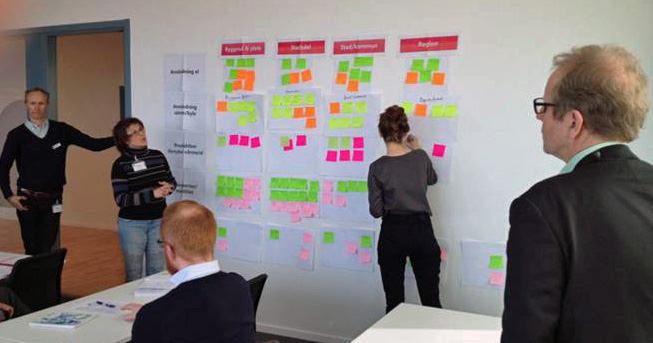To make the STEP UP approach workable for as many cities as possible it was essential to gain a better understanding of the state of sustainable city planning, implementation and key issues of the STEP UP learning network. This has allowed STEP UP to ascertain adaptability of the approach, allow for feedback and focus on issues that are important not only to STEP UP partner cities but to a wider network of ambitious cities.

Gothenburg - STEP UP Seminar at SPECIAL Conference - April 2014
STEP UP cities have produced reports on the states of sustainable city planning in their learning networks that identify key issues for coaching or training in those cities. Interviews with learning network cities took place in order to collect the required information to produce these reports.
Assessment of the initial state of sustainable city planning in STEP UP companion cities established:
- challenges faced.
- strategic energy and climate targets and Sustainable Energy Action Plan (SEAP) status.
- long term and broader vision for the city.
- political decision making processes and legislative cycles.
- stakeholder involvement.
- energy consumption and CO2 emissions by sector.
- transport and cross sector measures.
- status of implementation of SEAP.
- projects that link to effective implementation of SEAP.
The downloadable reports below summarise the state of sustainable city planning and the implementation of projects in this context. It contains the conclusions of the interviews held with cities of the learning networks and forms the basis upon which coaching with companion cities will be developed and learning network needs defined.
State of sustainable city planning in Flemish cities (Ghent’s network) – download here
State of sustainable city planning in Scottish cities and Nuremberg (Glasgow’s network) - download here
State of sustainable city planning in Nordic cities (Gothenburg’s network) – download here
State of sustainable city planning in Baltic cities (Riga’s network) – download here
Overall summary and conclusions for the wider network
The learning network of cities is a diverse network with cities at many different stages in making their city more sustainable, some already have a SEAP, others have other similar strategies and plans in place whilst others are considering these policy instruments. The stage of the sustainable city planning process in the cities interviewed depends on the background of each city, its culture, politics and existing local, regional and national developments. It is also heavily influenced by the city’s capacity and resource available to effectively produce instruments that aid sustainable urban energy planning, such as a SEAP. A lack of resources in some cities has meant that the co-ordination and implementation of energy policies and projects has been negatively affected as cities come to terms with new terminology, instruments, financial strategies and business models with which they are still unfamiliar.
There is a general need among the cities in the learning network to become acquainted with the many facets of developing a SEAP and strategies for implementing the actions within it. There is much interest in technical aspects such as data and monitoring, energy mapping, however the ‘softer’ aspects should not be neglected. Effective stakeholder participation, awareness raising, consultations are at least as important as having the relevant technical techniques in place as are the capacities required to apply them.
Implementation of the necessary measures to reach ambitious targets requires effective project management in complex environments and comes down to agreements among the many stakeholders involved and finding the right business models and financial incentives which can make it happen. Long term planning and implementation often require investments with long payback periods. This is an aspect which needs to be taken into account by all city stakeholders: city councils and administrations, companies, financial institutions and citizens.
Within the pool of network cities there are many good examples of reducing energy use and increasing the use of renewable energy. Not uncommonly these projects take into account many more aspects than just energy or climate. Many cities develop projects of varying scales either within the context of long term plans or as stand-alone efforts, depending upon their capacities and resources at their disposal. Still many financial, institutional, technical, legal and societal/behavioural barriers exist, some of which have to be solved at city level through stakeholder integration. Other barriers also need to be solved at higher policy level.
Much remains to be done but the interviewed cities are on the right track and they, together with their stakeholders, are changing their mindset gradually to take up the challenges which should improve their sustainability.
The key issues that arose from the city interviews, and therefore priorities for STEP UP were:
- Developing a SEAP and the resources and skills that accompany it
- Stakeholder involvement, buy-in and support
- Improved understanding of suitable financial models